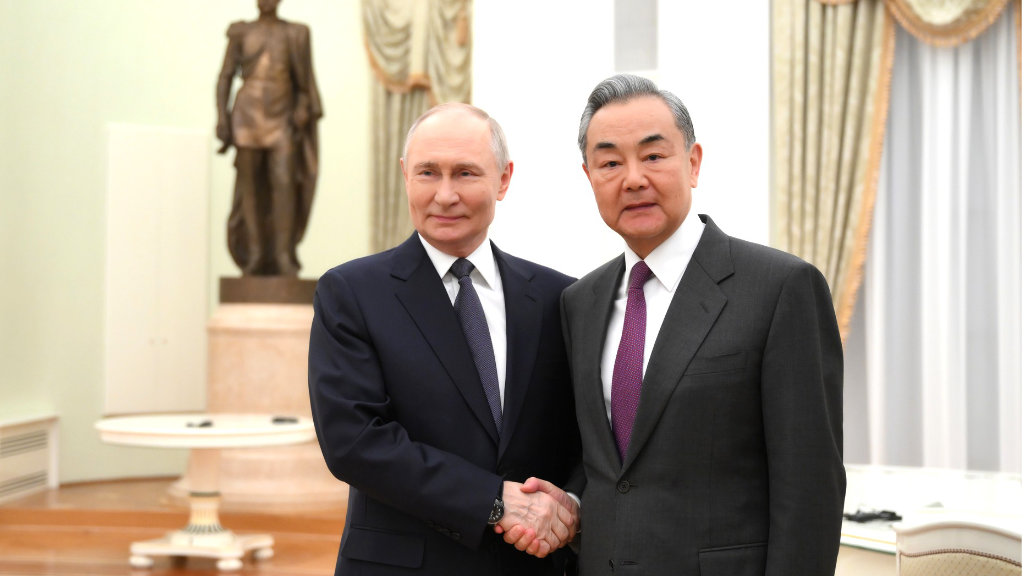The Chinese Foreign Minister, Wang Yi, has been visiting Moscow this week and held meetings with Russian Foreign Minister Sergey Lavrov and President Vladimir Putin.
Discussions revolved around bilateral and multilateral relations, including the coordination of Sino-Russian strategy as concerns the United Nations and the UN Security Council. Russia in particular has recently been unhappy with statements made by the UN Secretary-General, yet on the other hand has suggested a UN administration is appointed to manage Ukraine during a potential governmental transition period. These discussions imply a strategic alignment between Moscow and Beijing in what is being referred to as the ushering in of a ‘New World Order’. It should be stressed that both Russia and China are supportive of the United Nations and see it as a core pillar of the global diplomatic structure. However, they both view it as Western-centric and overly dominated by the wishes of the United States. Both have also been pushing for an enlargement of the permanent members of the Security Council to include Brazil, India and the African Union.
Additionally discussed were the BRICS, as well as the Shanghai Cooperation Organisation, and numerous other platforms such as the G20 and APEC, where Russia and China also work together.
Wang and Lavrov also discussed security risks in the Asia-Pacific region and touched upon several regional issues related to the situation on the Korean Peninsula, Iran’s nuclear programme, and the situation in Central Asia. They additionally evaluated prospects for building a new security entity in Eurasia amid stagnating Euro-Atlantic mechanisms. This has been affected by political problems currently facing the CSTO and potential European changes within NATO.
Wang confirmed the visit of China’s President, Xi Jinping, to Moscow to celebrate Victory Day in Red Square on May 9th. He will be the highest-profile leader to personally attend. The Brazilian President is also attending, along with the Armenian President and the Presidents of the 5 Central Asian Republics. No invitations have been extended to ‘unfriendly countries’ meaning most of Europe – who were allied with Russia during WWII – will be excluded. According to Russian Foreign Minister Sergey Lavrov, Vladimir Putin plans to visit China between late August and September 2025. That trip would coincide with the 80th anniversary of the victory over militarist Japan and the end of World War II, which ended a few months later in Asia than it did in Europe.
Current Russia-China bilateral trade volumes have fallen by 7.1% in value over the first two months of this year amongst some deliberate shifts in the goods supply chains as well as some difficulties created by Western sanctions. Interestingly, rail freight volumes increased by 9.3% with the difference mainly being the replacement of some industrial parts by lower cost, but increased volumes of agricultural products.
Further Reading
Russia-China Container Market Development: 2025-2030 Trends

 Русский
Русский













